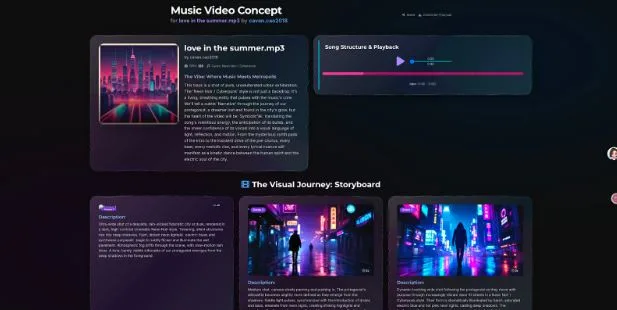What Every Independent Artist Should Know Before Signing a Record Deal
For independent musicians, few moments feel as exciting and intimidating, as being offered a record deal. After years of writing, recording, and performing on your own terms, someone from the industry finally says they believe in your talent. It feels like a reward for your hustle. But the truth is, signing a record deal can either be a major leap forward or a trap that holds you back. What you don’t know can hurt you. And once a contract is signed, there’s often no easy way out.
Before letting excitement lead the way, it’s essential to slow down and look at the bigger picture. Record labels offer resources and exposure, but they also seek to protect their own investment. As an independent artist, you must protect yours too. Here’s what every artist should seriously consider before agreeing to a record contract.
Signing Doesn’t Automatically Mean Success
Getting signed may feel like a finish line, but in reality, it’s just the beginning of a new kind of race. A record deal doesn’t guarantee radio play, viral exposure, or even an album release. Some signed artists wait years for their music to come out, if it comes out at all.
Labels sign many acts with the hope that a few will break through. Sometimes, artists are shelved without much explanation. And if your contract restricts you from releasing music independently, you could end up stuck, unable to share your work with fans or grow your career.
Signing with a label doesn’t make the grind disappear. It just changes what the grind looks like. You’ll still need to work hard, promote yourself, and produce your best material. In fact, expectations will be even higher than before.
You Could Be Giving Up More Than You Realize
One of the biggest misconceptions among emerging artists is that a record deal means partnership. In reality, many contracts are heavily one-sided. One of the first things to go is ownership of your master recordings. Once those rights are signed over, the label controls how, where, and when your music is used.
For example, your song could be featured in a commercial you’re not proud of, or withheld from release to prioritize another artist on the roster. You might not be allowed to re-record or re-release your own material for years. The lack of control can be both stifling and financially limiting.
Beyond masters, you might also be handing over a piece of your publishing, merchandise revenue, and even performance income. Every clause has weight, and it’s your job to understand each one.
Advances Sound Generous, But They’re Not Free
Labels often entice artists with a financial advance, especially when an artist lacks the funds to record, tour, or promote independently. While that money can be helpful, it’s not a gift, it’s a loan. Every dollar is recoupable, meaning it must be paid back through your earnings before you see any actual profit.
Let’s say you get a $50,000 advance. You might use it to fund your album and pay bills while working on music. But when your songs start generating income, the label takes their share first to recover the advance. If sales or streams fall short, you could remain unrecouped for years, and unable to access royalties.
Understanding how advances work is key to managing your expectations. Big checks can come with even bigger strings.
The Label May Take Creative Control
As an independent artist, you’ve likely grown used to choosing your own producers, visuals, collaborators, and release dates. That can change fast under a label’s control. Once you’re signed, the label often reserves the right to make key creative decisions.
They may insist on rewriting songs, scrapping entire projects, or pairing you with writers and producers you didn’t choose. The marketing department could reshape your image to fit a specific genre or demographic. In many cases, these decisions are made with commercial goals in mind, not artistic ones.
If creative freedom matters to you, bring it up early and make sure it’s addressed in writing. Otherwise, you could find yourself making music that doesn’t feel like your own.
Term Length Can Be a Career Killer
The excitement of being signed can overshadow one critical detail: how long the deal lasts. Many contracts are structured around a set number of albums, but they also include options, controlled by the label, to extend the deal indefinitely.
You could be locked in for years, even if you grow out of the style that first got you noticed, or if the relationship with the label sours. Trying to exit early often involves legal battles or hefty buyouts that most artists can’t afford.
Before agreeing to anything, carefully examine the contract’s duration and release requirements. If you’re not comfortable committing for five, seven, or ten years, don’t assume you’ll find a loophole later.
Don’t Let the Rush Push You Into a Bad Decision
Labels often move fast when they see momentum. They may present the deal as a now-or-never opportunity, hoping you’ll act before doing your homework. That pressure can feel overwhelming, especially if the offer comes during a peak in your career.
But one truth remains: if they really believe in you, they’ll wait. No legitimate contract needs to be signed in 24 hours. Take time to understand every term, discuss it with people you trust, and compare it with deals other artists have received.
Pausing to think isn’t a sign of disinterest. It’s a sign of professionalism.
Learn the Contract Language First
Most record contracts are written in dense legal jargon. It’s easy to nod along while missing details that could lock you into a bad deal. That’s why it’s crucial to build your knowledge of the basics before signing anything.
Spending time on understanding record label contracts can provide insight into how these agreements are structured and what common clauses really mean. It’s not about becoming a lawyer. It’s about knowing enough to recognize red flags before it’s too late.
When you’re equipped with the right knowledge, you’re less likely to be taken advantage of, and more likely to secure a deal that respects your work.
Work With a Lawyer Who Represents You
It cannot be overstated: never sign a contract without legal guidance. Not just any lawyer will do, you need someone who specializes in entertainment or music law. They’ll know exactly what to look for and how to negotiate on your behalf.
Avoid using a lawyer recommended by the label. That person may have divided loyalties. Your attorney should be completely independent, with your best interest in mind from start to finish.
A good lawyer won’t just interpret the language. They’ll also help restructure clauses to protect your rights and make sure you’re not giving away too much. What you spend upfront on legal help will save you countless headaches down the line.
Be Wary of 360 Deals
A growing number of labels offer 360 deals. These allow the label to collect a portion of all income streams, not just from music sales, but from touring, merch, brand partnerships, and more.
It may be framed as a win-win, with the label promising to support every part of your career. But if that support doesn’t materialize, you’re just giving away money for nothing.
Before agreeing to a 360 structure, ask specific questions: What will the label do to promote your live shows? Are they investing in merch production? Will they help land sponsorships? If not, their involvement in those areas may not be worth the cut they’re taking.
Independence is Power, Use It Wisely
In today’s landscape, being independent is more viable than ever. With social media, direct distribution, and streaming, artists can build real momentum without a label. The more success you generate on your own, the better your position when the time comes to negotiate.
Waiting until you have leverage can result in shorter deals, better royalty splits, and more creative freedom. Don’t rush into something just because it looks official. Focus on building your brand first, then let the offers come to you.
Closing Thoughts
A record deal can be a powerful tool, but only when you understand how to use it. Too many artists fall into the trap of signing early, signing fast, or signing blind. By doing your research, seeking legal guidance, and staying grounded, you give yourself a much better shot at long-term success.
Your music deserves to be heard, but it also deserves to be protected. Be smart, be patient, and make decisions that reflect your goals, not someone else’s.



